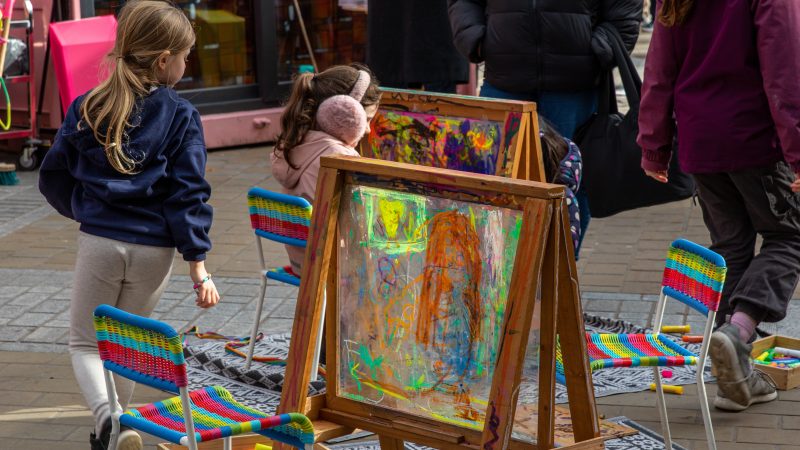
Today the government has unveiled a major overhaul of the national curriculum, promising to equip young people with the skills needed to navigate modern life. From spotting online misinformation to developing financial literacy, the reforms aim to strengthen literacy, numeracy and enhance children’s overall perception.
Drawing on recommendations from Professor Becky Francis’s Curriculum and Assessment Review, the reforms aim to raise standards in the so-called “lost years” at the start of secondary school, expand access to the arts for all, together with core enrichment activities, and introduce new tech-oriented qualifications. Framed as central to the Prime Minister’s ambition that two-thirds of young people engage in higher-level learning by age 25, the changes are set to be implemented from 2028, with a new statutory testing regime and an emphasis on broader life skills alongside academic achievement.
READ MORE: Education quality stagnating under Labour, party members say in poll
The Cultural Policy Unit, the independent think tank which I lead, has been working on restoring arts to the curriculum as one of its key policy areas, and was influential in several of the ideas included in Labour’s creative sector plan and manifesto. The proposed scrapping of the Ebacc – a measure which over the last decade had made arts and culture the preserve of a privileged few – is a bold recommendation that is to be hugely applauded. This is a major move towards reducing inequality. We are also delighted that the arts, together with the humanities and languages, will form a fifth pillar of a true and rounded education.
The arts are some of the best tools at a teacher’s disposal – they are both empowering and inclusive. Their importance lies not only in their cultural and educational value, but also in the values they foster, such as integration, empathy and tolerance. They are vital, too, to our children’s health and well-being, to our talent pipeline and to future careers: in the age of AI, we urgently need the ‘future skills’, the ‘transferable skills’ and the ‘human-centric skills’ that are baked into the arts.
In economic terms, the arts and humanities help drive creativity and innovation, attract tourism and inward investment, and power our fastest growing industrial sector. They are the pipeline into the creative industries, which have exhibited the highest potential for our country’s economic growth; they have grown the economy by 35% since 2010, compared to 22% growth in the economy overall. The UK government estimates that the creative industries contributed over £124 billion in gross value added (GVA) to the UK economy in 2022 employing a total of 2.4 million people. The creative output and Intellectual Property contribution of the arts also cannot be over-estimated. The UK is a world leader in the generation of new creative IP and the third largest exporter of creative services in the world.
The arts are broad spectrum subjects and today’s vital curriculum reform could prove to be a ‘growth’ policy in every sense. They are also crucial to the delivery of the Government’s ‘Opportunity’ mission.
This curriculum review is clearly a good start – now we need more funding for the arts in schools, akin to –for example – the sports premium, if we are going to reverse the barren years. Flesh also needs to be put on the bones of the new National Centre for Arts and Music Education, which could help reverse the decline in arts teaching and give every child a quality music education. With the new emphasis on countering disinformation and encouraging critical thinking, we would also like to see visual literacy introduced as a key part of the primary and secondary school curriculum.
We have also proposed ‘A Childhood Arts Guarantee’, which the government’s core enrichment measures looks set to address. This guarantee or entitlement would give all children the right to participate in our exceptionally rich arts, culture and shared heritage.
Subscribe here to our daily newsletter roundup of Labour news, analysis and comment– and follow us on Bluesky, WhatsApp, X and Facebook.
Share your thoughts. Contribute on this story or tell your own by writing to our Editor. The best letters every week will be published on the site. Find out how to get your letter published.
-
- SHARE: If you have anything to share that we should be looking into or publishing about this story – or any other topic involving Labour– contact us (strictly anonymously if you wish) at [email protected].
- SUBSCRIBE: Sign up to LabourList’s morning email here for the best briefing on everything Labour, every weekday morning.
- DONATE: If you value our work, please chip in a few pounds a week and become one of our supporters, helping sustain and expand our coverage.
- PARTNER: If you or your organisation might be interested in partnering with us on sponsored events or projects, email [email protected].
- ADVERTISE: If your organisation would like to advertise or run sponsored pieces on LabourList‘s daily newsletter or website, contact our exclusive ad partners Total Politics at [email protected].




More from LabourList
‘Labour’s quiet quest for democratic renewal’
‘Labour promised to make work pay. Now it must deliver for young people’
‘Council Tax shouldn’t punish those who have the least or those we owe the most’